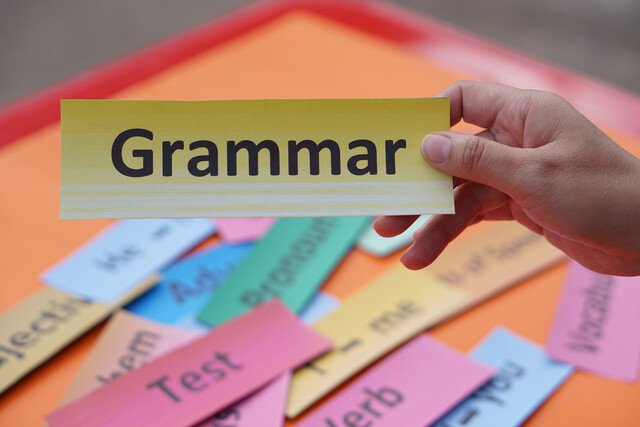Online Class: Novel Writing 101

no certificate
with CEU Certificate*
-
26Lessons
-
63Exams &
Assignments -
5,977Students
have taken this course -
22Hours
average time -
2.2CEUs
Course Description
Mastering the Art of Novel Writing: A Comprehensive Guide
Crafting a novel is an art that intertwines creativity, discipline, and dedication. While the journey of novel-writing can be intricate, it is by no means unattainable, especially when armed with the right tools and guidance.
This course, "Mastering the Art of Novel Writing," offers both budding and seasoned writers a structured path to breathe life into their stories. We delve deep into the nuances of crafting a compelling narrative, providing you with a toolkit to develop engaging characters, build gripping plots, and lace your narrative with your unique style.
Why This Course?
For many, the idea of a structural approach to writing may seem restrictive. However, a well-constructed framework can act as a compass, guiding writers through the vast ocean of their imagination without getting lost. By adhering to tried-and-true methodologies, writers can channel their energy on ideation, weaving intricate plot twists, and creating memorable characters.
Our course encompasses all elements vital to novel creation, referred to as 'dramatic construction'. From the seed of an idea to the final full stop, we support you in your journey, ensuring that your story stands tall on these foundational pillars.
Furthermore, with the ever-evolving publishing landscape, simply penning a great story isn't enough. We extend our guidance beyond writing, offering insights into navigating the complex world of publishing, ensuring your masterpiece finds its rightful place on bookshelves.
A Glimpse into the Course Modules:
-
Definition of a Novel: Understanding the essence of a novel and how it differentiates from other forms of literature.
-
Work Philosophy: Adopting the right mindset and work ethic for sustained writing.
-
Novel Writing Methods: Exploring varied approaches to novel writing to find what suits you best.
-
Selecting a Specific Class & Genre: Recognizing where your story fits in the literary world and tailoring it to a target audience.
-
Point of View (POV): Delving into narrative styles and discerning which lends best to your story.
-
Manuscript Formatting: Preparing your manuscript professionally for submissions.
-
Storyboarding to Synopsis Formation: Structuring your novel, mapping out key events, and preparing a gripping synopsis.
-
Five Elements of Fiction Writing: Unraveling the elements that make fiction resonate with readers.
-
Character to Plot Development: Crafting memorable characters and placing them in riveting scenarios.
-
Setting, Theme, Style, & Tone: Building the world of your novel and defining its mood.
-
Climax, Critical Scenes & Cause and Effect: Driving your story towards pivotal moments and understanding their ripple effects.
-
Dialogue & Exposition: Mastering the art of authentic dialogue and balanced exposition.
-
Polishing of Prose: Refining your narrative for a smooth reading experience.
-
Checklist of Questions: A reflective module ensuring all boxes are ticked before proceeding.
-
Publish or Perish - Getting Ready to Submit: Preparing your work and yourself for the world of publishing.
... and more!
Each lesson is meticulously crafted, complete with assignments, resources, and evaluations to ensure not just theoretical knowledge but practical application.
In Conclusion
Novel writing can be a challenging endeavor, but with commitment, passion, and the right guidance, the path becomes clearer and the journey enjoyable. If you're ready to commit to your literary aspirations, to mold your ideas into coherent, compelling narratives, then this course is your compass, guiding light, and mentor.
Join us on this transformative journey, and let's together bring your novel to life.
- Completely Online
- Self-Paced
- Printable Lessons
- Full HD Video

- 6 Months to Complete
- 24/7 Availability
- Start Anytime
- PC & Mac Compatible
- Android & iOS Friendly
- Accredited CEUs

Course Lessons
Lesson 1. Novel Writing Unplugged
 Lesson 1 Video
Lesson 1 Video Review Practice Worksheet: Lesson-1-WorkSheet-20275.pdf
Review Practice Worksheet: Lesson-1-WorkSheet-20275.pdf Lesson discussions: Reasons for Taking this Course
Lesson discussions: Reasons for Taking this Course Complete Assignment: Your Novel
Complete Assignment: Your Novel Complete: Lesson 1 Assignment
Complete: Lesson 1 Assignment Assessment: Lesson 1 Review Exam
Assessment: Lesson 1 Review Exam
Lesson 2. Guided Literary Marathon: Crafting Novels with Discipline
 Lesson 2 Video
Lesson 2 Video Review Practice Worksheet: Lesson-2-HomeWork-20277.pdf
Review Practice Worksheet: Lesson-2-HomeWork-20277.pdf Complete: Lesson 2 Assignment
Complete: Lesson 2 Assignment Assessment: Lesson 2 Review Exam
Assessment: Lesson 2 Review Exam
Lesson 3. From Concept to Manuscript: The Journey of Novel Crafting
 Lesson 3 Video
Lesson 3 Video Review Practice Worksheet: Lesson-3-StudyGuide-20281.pdf
Review Practice Worksheet: Lesson-3-StudyGuide-20281.pdf Assessment: Lesson 3 Exam
Assessment: Lesson 3 Exam Assessment: Lesson 3 Review Exam
Assessment: Lesson 3 Review Exam
Lesson 4. Beyond the Pages: Understanding the Art and Evolution of Storytelling Forms
 Lesson 4 Video
Lesson 4 Video Review Practice Worksheet: Lesson-4-StudyGuide-20283.pdf
Review Practice Worksheet: Lesson-4-StudyGuide-20283.pdf Assessment: Lesson 4 Exam
Assessment: Lesson 4 Exam Assessment: Lesson 4 Review Exam
Assessment: Lesson 4 Review Exam
Lesson 5. Genre: The Storytelling Compass
 Lesson 5 Video
Lesson 5 Video Review Practice Worksheet: Lesson-5-WorkSheet-20284.pdf
Review Practice Worksheet: Lesson-5-WorkSheet-20284.pdf Complete: Lesson 5 Assignment
Complete: Lesson 5 Assignment Assessment: Lesson 5 Exam
Assessment: Lesson 5 Exam
Lesson 6. Narrative Perspectives: A Comprehensive Guide for Novelists
 Lesson 6 Video
Lesson 6 Video Review Practice Worksheet: Lesson-6-StudyGuide-20287.pdf
Review Practice Worksheet: Lesson-6-StudyGuide-20287.pdf Assessment: Lesson 6 Exam
Assessment: Lesson 6 Exam Assessment: Lesson 6 Review Exam
Assessment: Lesson 6 Review Exam
Lesson 7. Mastering the Art of Manuscript Formatting
 Review Practice Worksheet: Lesson-7-Downloadable-20291.pdf
Review Practice Worksheet: Lesson-7-Downloadable-20291.pdf Complete: Lesson 7 Assignment
Complete: Lesson 7 Assignment Assessment: Lesson 7 Exam
Assessment: Lesson 7 Exam Assessment: Lesson 7 Review Exam
Assessment: Lesson 7 Review Exam
Lesson 8. The Art of Storyboarding: Crafting Novel Narratives
 Lesson 8 Video
Lesson 8 Video Review Practice Worksheet: Lesson-8-HomeWork-20295.pdf
Review Practice Worksheet: Lesson-8-HomeWork-20295.pdf Assessment: Lesson 8 Exam
Assessment: Lesson 8 Exam
Lesson 9. A Fun Journey into Synopsis Writing
 Lesson 9 Video
Lesson 9 Video Review Practice Worksheet: Lesson-9-StudyGuide-20299.pdf
Review Practice Worksheet: Lesson-9-StudyGuide-20299.pdf Complete: Lesson 9 Assignment
Complete: Lesson 9 Assignment Assessment: Lesson 9 Exam
Assessment: Lesson 9 Exam Assessment: Lesson 9 Review Exam
Assessment: Lesson 9 Review Exam
Lesson 10. Fiction Writing: A Journey Through Storytelling
 Lesson 10 Video
Lesson 10 Video Review Practice Worksheet: Lesson-10-Downloadable-20303.pdf
Review Practice Worksheet: Lesson-10-Downloadable-20303.pdf Complete: Lesson 10 Assignment
Complete: Lesson 10 Assignment Assessment: Lesson 10 Exam
Assessment: Lesson 10 Exam Assessment: Lesson 10 Review Exam
Assessment: Lesson 10 Review Exam
Lesson 11. Character Development Mastery: Unleashing Narrative Potential
 Lesson 11 Video
Lesson 11 Video Review Practice Worksheet: Lesson-11-Activity-20307.pdf
Review Practice Worksheet: Lesson-11-Activity-20307.pdf Assessment: Lesson 11 Exam
Assessment: Lesson 11 Exam Assessment: Lesson 11 Review Exam
Assessment: Lesson 11 Review Exam
Lesson 12. The Mechanics of Conflict and Plot in Storytelling
 Lesson 12 Video
Lesson 12 Video Review Practice Worksheet: Lesson-12-Downloadable-20311.pdf
Review Practice Worksheet: Lesson-12-Downloadable-20311.pdf Complete: Lesson 12 Assignment
Complete: Lesson 12 Assignment Assessment: Lesson 12 Exam
Assessment: Lesson 12 Exam Assessment: Lesson 12 Review Exam
Assessment: Lesson 12 Review Exam
Lesson 13. Crafting Narratives: Mastering Plot Structures
 Lesson 13 Video
Lesson 13 Video Review Practice Worksheet: Lesson-13-StudyGuide-20315.pdf
Review Practice Worksheet: Lesson-13-StudyGuide-20315.pdf Assessment: Lesson 13 Exam
Assessment: Lesson 13 Exam Assessment: Lesson 13 Review Exam
Assessment: Lesson 13 Review Exam
Lesson 14. Setting and Theme: The Narrative Framework of Novels
 Lesson 14 Video
Lesson 14 Video Review Practice Worksheet: Lesson-14-Activity-20319.pdf
Review Practice Worksheet: Lesson-14-Activity-20319.pdf Complete: Lesson 14 Assignment
Complete: Lesson 14 Assignment Assessment: Lesson 14 Exam
Assessment: Lesson 14 Exam Assessment: Lesson 14 Review Exam
Assessment: Lesson 14 Review Exam
Lesson 15. Style vs. Tone: Literary Building Blocks
 Lesson 15 Video
Lesson 15 Video Review Practice Worksheet: Lesson-15-StudyGuide-20321.pdf
Review Practice Worksheet: Lesson-15-StudyGuide-20321.pdf Assessment: Lesson 15 Exam
Assessment: Lesson 15 Exam Assessment: Lesson 15 Review Exam
Assessment: Lesson 15 Review Exam
Lesson 16. The Pivotal Art of Novel Writing
 Lesson 16 Video
Lesson 16 Video Review Practice Worksheet: Lesson-16-StudyGuide-20322.pdf
Review Practice Worksheet: Lesson-16-StudyGuide-20322.pdf Complete: Lesson 16 Assignment
Complete: Lesson 16 Assignment Assessment: Lesson 16 Exam
Assessment: Lesson 16 Exam Assessment: Lesson 16 Review Exam
Assessment: Lesson 16 Review Exam
Lesson 17. The Vital Role of Critical Scenes in Storytelling
 Lesson 17 Video
Lesson 17 Video Review Practice Worksheet: Lesson-17-HomeWork-20323.pdf
Review Practice Worksheet: Lesson-17-HomeWork-20323.pdf Complete: Lesson 17 Assignment
Complete: Lesson 17 Assignment Assessment: Lesson 17 Exam
Assessment: Lesson 17 Exam
Lesson 18. Mastering Cause and Effect: A Novelist's Guide to Compelling Storytelling
 Lesson 18 Video
Lesson 18 Video Review Practice Worksheet: Lesson-18-WorkSheet-20324.pdf
Review Practice Worksheet: Lesson-18-WorkSheet-20324.pdf Complete: Lesson 18 Assignment
Complete: Lesson 18 Assignment Assessment: Lesson 18 Exam
Assessment: Lesson 18 Exam Assessment: Lesson 18 Review Exam
Assessment: Lesson 18 Review Exam
Lesson 19. Words that Speak: Mastering Dialogue in Writing
 Lesson 19 Video
Lesson 19 Video Review Practice Worksheet: Lesson-19-Activity-20325.pdf
Review Practice Worksheet: Lesson-19-Activity-20325.pdf Assessment: Lesson 19 Exam
Assessment: Lesson 19 Exam Assessment: Lesson 19 Review Exam
Assessment: Lesson 19 Review Exam
Lesson 20. The Intricacy and Impact of Figurative Language
 Lesson 20 Video
Lesson 20 Video Review Practice Worksheet: Lesson-20-WorkSheet-20326.pdf
Review Practice Worksheet: Lesson-20-WorkSheet-20326.pdf Assessment: Lesson 20 Exam
Assessment: Lesson 20 Exam Assessment: Lesson 20 Review Exam
Assessment: Lesson 20 Review Exam
Lesson 21. Craft Your Narrative with Elegance and Precision
 Lesson 21 Video
Lesson 21 Video Review Practice Worksheet: Lesson-21-Activity-20327.pdf
Review Practice Worksheet: Lesson-21-Activity-20327.pdf Complete: Lesson 21 Assignment
Complete: Lesson 21 Assignment Assessment: Lesson 21 Exam
Assessment: Lesson 21 Exam Assessment: Lesson 21 Review Exam
Assessment: Lesson 21 Review Exam
Lesson 22. Conclusion Mastery: Tying Up the Narrative Tapestry
 Lesson 22 Video
Lesson 22 Video Review Practice Worksheet: Lesson-22-HomeWork-20328.pdf
Review Practice Worksheet: Lesson-22-HomeWork-20328.pdf Complete: Lesson 22 Assignment
Complete: Lesson 22 Assignment Assessment: Lesson 22 Exam
Assessment: Lesson 22 Exam Assessment: Lesson 22 Review Exam
Assessment: Lesson 22 Review Exam
Lesson 23. From Draft to Masterpiece: The Art of Manuscript Revision
 Lesson 23 Video
Lesson 23 Video Review Practice Worksheet: Lesson-23-Downloadable-27301.pdf
Review Practice Worksheet: Lesson-23-Downloadable-27301.pdf Complete: Lesson 23 Assignment
Complete: Lesson 23 Assignment Assessment: Lesson 23 Exam
Assessment: Lesson 23 Exam Assessment: Lesson 23 Review Exam
Assessment: Lesson 23 Review Exam
Lesson 24. Enhancing Clarity and Coherency in Writing
 Lesson 24 Video
Lesson 24 Video Review Practice Worksheet: Lesson-24-Activity-27302.pdf
Review Practice Worksheet: Lesson-24-Activity-27302.pdf Complete: Lesson 24 Assignment
Complete: Lesson 24 Assignment Assessment: Lesson 24 Exam
Assessment: Lesson 24 Exam Assessment: Lesson 24 Review Exam
Assessment: Lesson 24 Review Exam
Lesson 25. Publishing Unlocked
 Lesson 25 Video
Lesson 25 Video Review Practice Worksheet: Lesson-25-Activity-27303.pdf
Review Practice Worksheet: Lesson-25-Activity-27303.pdf Assessment: Lesson 25 Exam
Assessment: Lesson 25 Exam Assessment: Lesson 25 Review Exam
Assessment: Lesson 25 Review Exam
Lesson 26. Writing Beyond Completion: A Pathway to Continuous Creativity
 Lesson 26 Video
Lesson 26 Video Review Practice Worksheet: Lesson-26-StudyGuide-27304.pdf
Review Practice Worksheet: Lesson-26-StudyGuide-27304.pdf Lesson discussions: End of Course Poll; Course Comments
Lesson discussions: End of Course Poll; Course Comments Complete: Final Assignment
Complete: Final Assignment Assessment: Lesson 26 Review Exam
Assessment: Lesson 26 Review Exam
Learning Outcomes
- Analyze the role of historical context and diverse philosophies in shaping novel writing as a dynamic and evolving literary form.
- Identify and describe the essential features of a novel, including cohesive plot structure, well-defined characters, and an undercurrent of reality.
- Define a structured writing plan, including outline, synopsis, and chapter summaries, to maintain focus and organization throughout the novel-writing process.
- Identify personal writing schedules and strategies to consistently dedicate time for writing, ensuring steady progress on their novel.
- Demonstrate understanding of diverse novel writing methods by outlining personal approaches to creative and structured storytelling.
- Identify and apply character development techniques to create complex and engaging characters within a narrative.
- Analyze how technological advancements and changing reader preferences impact the landscape of short stories and novels by listing two examples of each influence.
- Define the unique attributes of short stories compared to novels by identifying three key characteristics that contribute to their distinct form and narrative style.
- Identify personal writing preferences and align them with a suitable novel genre by evaluating individual storytelling style and thematic interests.
- Define the characteristics of at least two novel types, such as picaresque and epistolary, with examples from modern literature.
- Demonstrate an understanding of how different points of view can impact reader engagement and emotional depth in storytelling.
- Identify the distinct characteristics and advantages of first-person, third-person limited, third-person omniscient, and second-person points of view in novel writing.
- Define standard manuscript formatting requirements, including font type, margins, and page numbering, by the end of the session.
- Demonstrate mastery of lesson content at levels of 70% or higher.
Additional Course Information

- Document Your Lifelong Learning Achievements
- Earn an Official Certificate Documenting Course Hours and CEUs
- Verify Your Certificate with a Unique Serial Number Online
- View and Share Your Certificate Online or Download/Print as PDF
- Display Your Certificate on Your Resume and Promote Your Achievements Using Social Media

Choose Your Subscription Plan
No Certificate / No CEUs
This course only
| Includes certificate | X |
| Includes CEUs | X |
| Self-paced |

|
| Instructor support |

|
| Time to complete | 6 months |
| No. of courses | 1 course |
Certificate & CEUs
This course only
| Includes certificate |

|
| Includes CEUs |

|
| Self-paced |

|
| Instructor support |

|
| Time to complete | 6 months |
| No. of courses | 1 course |
Certificates & CEUs
Includes all 600+ courses
| Includes certificate |

|
| Includes CEUs |

|
| Self-paced |

|
| Instructor support |

|
| Time to complete | 12 Months |
| No. of courses | 600+ |
Certificates & CEUs
Includes all 600+ courses
| Includes certificate |

|
| Includes CEUs |

|
| Self-paced |

|
| Instructor support |

|
| Time to complete | 24 Months |
| No. of courses | 600+ |
Student Testimonials
- "Great course, challenging quizzes and assignments. The instructor is helpful and provides the right amount of guidance." -- Nicholas Y.
- "The course helped fill in gaps in my knowledge about novels and novel-writing. I feel enabled to start drafting my first novel after completing this course." -- Lisa G.
- "I appreciated the positive feedback from the instructor very much." -- Ronald C.
- "The instructor was very pleasant individual and helpful as well!" -- Laura A.
- "Two thumbs up!" -- Ralph C.
- "Thoroughly enjoyed it." -- Hazel G.
- "I loved this course! Thank you for offering it!" -- Laura G.
- "Instructor was quite good." -- Rick H.
- "The instructor must have been very open-minded to accept different avenues of the imagination and also to accept the "real slice of life" as she put it." -- Mary M.
Related Courses
-
 72 hours
7.2 CEUs
Writing Help Course Bundle
+ More Info
72 hours
7.2 CEUs
Writing Help Course Bundle
+ More Info
-
 12 hours
1.2 CEUs
Write to Win: Secrets of Persuasive Writing
+ More Info
12 hours
1.2 CEUs
Write to Win: Secrets of Persuasive Writing
+ More Info
-
 14 hours
1.4 CEUs
Journalism 101
+ More Info
14 hours
1.4 CEUs
Journalism 101
+ More Info
-
 6 hours
0.6 CEUs
Freelance Writing 101
+ More Info
6 hours
0.6 CEUs
Freelance Writing 101
+ More Info
-
 5 hours
0.5 CEUs
Writing the Great American Short Story
+ More Info
5 hours
0.5 CEUs
Writing the Great American Short Story
+ More Info
-
 11 hours
1.1 CEUs
Writing Effective Emails in the Workplace
+ More Info
11 hours
1.1 CEUs
Writing Effective Emails in the Workplace
+ More Info
-
 11 hours
1.1 CEUs
How to Write Short Stories for Children
+ More Info
11 hours
1.1 CEUs
How to Write Short Stories for Children
+ More Info
-
 17 hours
1.7 CEUs
Poetry Writing 101
+ More Info
17 hours
1.7 CEUs
Poetry Writing 101
+ More Info
-
 5 hours
0.5 CEUs
Creative Writing for Beginners
+ More Info
5 hours
0.5 CEUs
Creative Writing for Beginners
+ More Info
-
 19 hours
1.9 CEUs
Creative Writing 101
+ More Info
19 hours
1.9 CEUs
Creative Writing 101
+ More Info
-
 9 hours
0.9 CEUs
Nonfiction Writing 101
+ More Info
9 hours
0.9 CEUs
Nonfiction Writing 101
+ More Info
-
 11 hours
1.1 CEUs
Journaling and Memoir Writing
+ More Info
11 hours
1.1 CEUs
Journaling and Memoir Writing
+ More Info
-
 12 hours
1.2 CEUs
How to Write Case Studies
+ More Info
12 hours
1.2 CEUs
How to Write Case Studies
+ More Info
-
 12 hours
1.2 CEUs
Paranormal Romance Writing
+ More Info
12 hours
1.2 CEUs
Paranormal Romance Writing
+ More Info
-
 29 hours
2.9 CEUs
Writing Basics 101: Spelling, Grammar, Punctuation, Writing Structures
+ More Info
29 hours
2.9 CEUs
Writing Basics 101: Spelling, Grammar, Punctuation, Writing Structures
+ More Info
-
 6 hours
0.6 CEUs
English Grammar Level 3
+ More Info
6 hours
0.6 CEUs
English Grammar Level 3
+ More Info
-
 12 hours
1.2 CEUs
Advertising, Marketing and Sales Writing
+ More Info
12 hours
1.2 CEUs
Advertising, Marketing and Sales Writing
+ More Info
-
 11 hours
1.1 CEUs
How to Write a Short Story
+ More Info
11 hours
1.1 CEUs
How to Write a Short Story
+ More Info
-
 16 hours
1.6 CEUs
Advertising Copywriter
+ More Info
16 hours
1.6 CEUs
Advertising Copywriter
+ More Info





